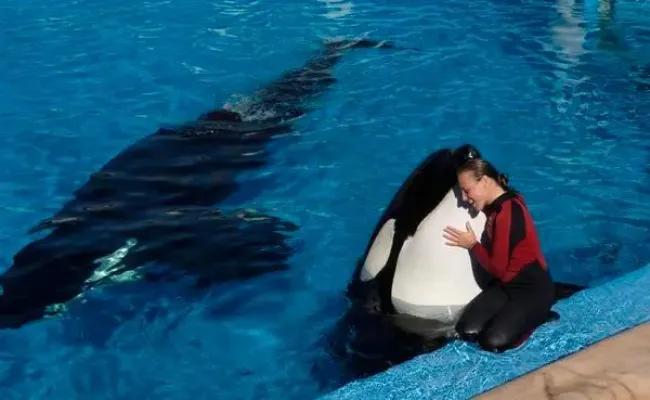Dawn Brancheau Video: SeaWorld's Heartfelt Tribute to a Beloved Trainer
The memorial tribute for Dawn Brancheau at SeaWorld's amphitheater was undoubtedly a poignant moment, drawing hundreds to honor a trainer who had dedicated her life to the park and its animals.
However, as with any public event in the wake of a tragic incident, questions arise about the true intent behind such a gathering. Was this a genuine expression of grief, or was it a carefully orchestrated PR move aimed at redirecting public attention from the disturbing circumstances of Brancheau's death?
The timing of the tribute, just days after the fatal incident, and its placement before the first killer whale show since her death, raises further questions. It seems as though SeaWorld was eager to return to business as usual, perhaps prioritizing the continuity of its operations over a more thorough examination of the risks faced by its trainers. By announcing that trainers would no longer enter the water during shows, SeaWorld framed the change as a safety precaution. However, this decision also calls into question the nature of the "bond" that the park claims to have with its killer whales. If trainers are no longer entering the water, does this signify a recognition of the inherent danger in these interactions, or is it merely a superficial response to a complex issue?
Tilikum's attack on Brancheau was not an isolated event. The orca had a well-documented history of aggression, having been involved in the deaths of at least two other individuals before Brancheau. This raises the question of whether SeaWorld was truly committed to understanding and addressing the root causes of such behavior, or if it was more concerned with maintaining the status quo. The fact that SeaWorld has been reluctant to openly discuss Tilikum's violent history, and has instead focused on reassuring the public about its "extensive protocols and training," only adds to the suspicion that the park may be more concerned with protecting its image than with ensuring the safety of its employees and the well-being of its animals.
The tribute to Brancheau, while undoubtedly moving, felt to some like a superficial gesture. It was a way for SeaWorld to acknowledge the loss of a beloved colleague while simultaneously downplaying the larger issues at play. The deeper question remains: Will SeaWorld take meaningful steps to address the ethical and safety dilemmas associated with keeping killer whales in captivity, or will it continue to prioritize profits over the well-being of both its trainers and its animals?
In the end, the memorial tribute may have served as a way for SeaWorld to pay its respects to Dawn Brancheau, but it also highlighted the complex and often contradictory nature of the relationship between the park, its trainers, and its killer whales. As the world watches, the true test of SeaWorld's commitment to change will be in the actions it takes moving forward, not just in the words it chooses to say in the wake of a tragedy.
